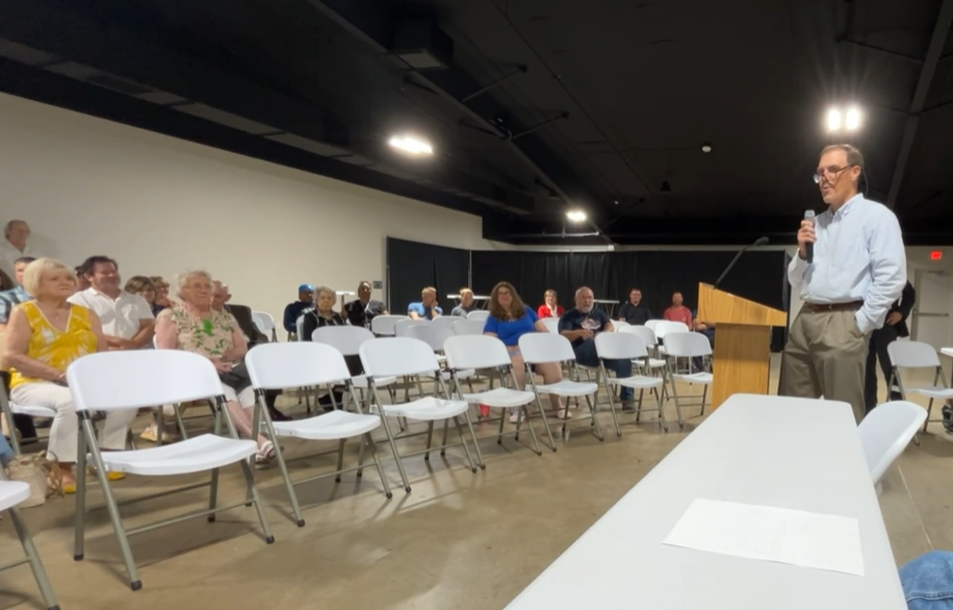DG MARTIN COLUMN: North Carolina’s Godfather
Published 10:56 am Sunday, October 25, 2020
|
Getting your Trinity Audio player ready...
|
Does North Carolina have a godfather?
We would not want our godfather to be anything like Mexican Gen. Salvador Cienfuegos Zepeda, who is called “El Padrino,” which means “The Godfather.”

D.G. Martin
Zepeda was arrested recently and charged with helping a drug cartel smuggle thousands of kilograms of cocaine, heroin, methamphetamine and marijuana into the United States.
Trending
We would rather have one like Sam Ragan, who was known throughout North Carolina as our literary godfather.
Ragan, who died in 1996, was an editor of the Raleigh News & Observer before buying, then managing and editing The Pilot newspaper in Southern Pines. He served as the state’s poet laureate and chairman of the North Carolina Arts Council.
He gained his godfather status, not so much from these high-level positions but from how he used these influential posts to promote poets, novelists, essayists and writing in general.
His own writing was mainly down-to-earth and full-of-life poetry that he mixed in with his newspaper columns that celebrated North Carolina and its people.
Ragan’s remarkable life called out for a biography that explained the sources of his poetic and writing talents and his commitment to promote the talents and works of others.
Thankfully, Lewis Bowling, a writer himself and a teacher at North Carolina Central University, has taken up the task. His new book, “Sam Ragan: North Carolina’s Literary Godfather,” is the result.
Trending
Bowling follows Ragan’s life from his growing up days as the child of struggling tobacco farmers, his successful college days at Atlantic Christian College (now Barton College), his journeyman experiences with several North Carolina newspapers before landing with the News & Observer where he ultimately became executive editor, his marriage to his beloved partner Marjorie, his three years of service in World War II, and his time at The Pilot.
Bowling tells this rich story best when he uses Ragan’s own words from poetry and columns.
For instance, Ragan’s column for the Atlantic Christian campus newspaper titled “Thoughts While Strolling,” was, Bowling writes, “a collection of random thoughts instead of a cohesive narrative.” Here is a short sample from the young college student:
“Observations on a downtown street: the public be jammed.
“Time means nothing to me. I prefer Literary Digest.
“I like to taste the blowing wind when it’s thick and raw.
“Flowers are hopping out of the ground like rabbits out of a hat.”
These published musings came close to poetry and were a predictor of how Ragan turned such musings into his fine poetry.
Later, at the News & Observer and The Pilot, his column called “Southern Accent” shared information about events and writing in the region. Each year he wrote a Christmas poem. In 1954 it contained these words:
“With a jingle of bells, and songs very loud,
Merry Christmas to clans from McAnn to McLeod.
To elks and their ilk in all of the lodges,
We add greetings to all, and to Governor Hodges.”
Sometimes, he used his own poems to teach and inspire others to write. For instance:
“Where does a poem come from?
“No one knows.
“Bits and pieces are lodged within
“From days, months, years, lifetimes,
“And then something nudges them
“Into the sunlight.
“You suggest and imply,
“Something happens,
“A poem is written a long time
“Before it goes down on paper.”
Bowling’s book, it turns out, is largely an anthology of Ragan’s columns and poetry. As such, it is a treasure for which we owe Bowling an enthusiastic thank you.
D.G. Martin hosts “North Carolina Bookwatch” Sunday at 3:30 p.m. and Tuesday at 5 p.m. on UNC-TV. The program also airs on the North Carolina Channel Tuesday at 8 p.m. and other times.





